 When he was a young man in his mid-twenties, future Roman leader Julius Caesar was voyaging across the Mediterranean Sea. Pirates swarmed over his ship. They took him to their base on tiny Farmakonisi Island, which lies off the coast of Asia Minor (modern-day Turkey), and held him for ransom. When he learned how much the pirates were demanding for his release, Caesar laughed. Do you have any idea who I am, he asked. I belong to one of Rome’s most important families. So you can get more money for me—a lot more—almost three times as much. The astonished pirates were only too happy to oblige him. Keeping a friend and two servants with him on Farmakonisi, Caesar ordered the rest of his traveling party to go to Asia Minor and raise his ransom. While they were doing that, Caesar acted as if he were the ruler of the tiny island, rather than a captive cowering in fright. He ordered the pirates to attend lectures and poetry readings he gave, and prodded those who nodded off as he droned on and on and on. When he wanted to sleep, he ordered the pirates to either speak in whispers or go to another part of the island. He even played games with them. He also told them that when he was released, I promise I will hunt you down and execute you. In the spirit of bonhomie he engendered, the pirates apparently thought he was joking. He wasn’t. Though outwardly he was friendly with the pirates, he seethed inwardly at the humiliation of being taken prisoner. After the ransom was paid, Caesar sailed to a nearby port. He raised a fleet of ships and scores of armed men. He returned to Farmakonisi, captured the pirates, and reclaimed the ransom money. He threw his former captors into prison. They didn’t stay there long. Caesar crucified them. He did show some mercy. Since crucifixion was a long, lingering death, he cut their throats so they died instantly.  MLA 8 Citation
Whiting, Jim. "A Man of His Word." Nonfiction Minute, iNK Think Tank, 26 Mar. 2018, www.nonfictionminute.org/the-nonfiction-minute/A-Man-of-his-Word.
1 Comment
 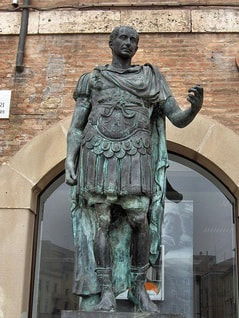 Julius Caesar Julius Caesar When Julius Caesar took control of the Roman government, he decided to reform the calendar. Because it was a lunar calendar—based on complete cycles of the moon—it had fluctuated widely for centuries. Some years had as few as 355 days while others nudged 380, often seemingly by whim. After lengthy consultations with the Egyptian astronomer Sosigenes, Caesar established a calendar that is virtually the same one we use today. The lengths of the months alternated between 30 and 31 days, except February which had 29. The new calendar came into effect on January 1, 45 BCE (Before the Common Era). A grateful Roman Senate immediately changed the name of the month of Quintilis—Julius Caesar’s birth month—to July in his honor. As is the case today, it had 31 days. Caesar had only one year to enjoy “his” month, as he was assassinated the following March. His successor was his grand-nephew Octavian, who took the name of Augustus Caesar when he officially became the first Roman emperor. In 8 BCE the Senate decided that he also deserved a month. Because several noteworthy events during Augustus’s reign had occurred in Sextilis, the month following July, they chose it. Big problem. Sextillis had only 30 days. No way would the Senate allow Augustus to be “inferior” to his great-uncle in any way. So it took a day from February and tacked it on at the end of August. That created another problem. Three consecutive months—July, August, and September—were now 31 days long. The fix was simple: the Senate simply flipped the lengths of the remaining four months. September and November went from 31 days to 30, while October and December bulked up to 31. The Senate wasn’t finished with its tinkering. Nearly 70 years later, it honored the notorious emperor Nero by changing Aprilis to Neronius. The new name never gained traction. Nero. who had murdered his brother, mother, and wife, committed suicide in 68 CE (Common Era). The Senate—undoubtedly relieved at his demise—hastily returned Neronius to its original name. 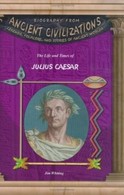 Here is Jim's biography of Julius Caesar, who became a very successful military commander who added more than 200,000 square miles to the territories under Rome’s control. But his triumphs created powerful enemies in Rome. Eventually he was assassinated in the Roman Senate. MLA 8 CItation
Whiting, Jim. "July, August and Neronius." Nonfiction Minute, iNK Think Tank, 14 Nov. 2017, www.nonfictionminute.org/july-august-and-neronius.  The onset of spring, summer, fall, and winter every year is precisely measured, depending on the sun’s position. But there’s no similar astronomical or scientific reason for celebrating New Years on January 1. Many people don’t. The Chinese New Year occurs on the second new moon after the winter solstice, between late January and mid-February. Muslims mark the occasion on the first day of Muharram, the first month of the Islamic calendar. That calendar is based on the lunar cycle, 11 or 12 days shorter than the solar calendar. So their New Year comes a little earlier every year. Rosh Hashanah, the start of the Jewish New Year, is a two-day observance that begins 163 days after Passover and varies between September 5 and October 5. Unlike other New Year’s celebrations, Rosh Hashanah is holy, a time for piety rather than parties. There was just as much variation in ancient times. In Babylon, the first new moon after the vernal equinox marked the New Year. Egyptians celebrated it in early August, when the annual Nile River flooding began. In Greece, Athens and Sparta couldn’t get along, so their respective new years didn’t occur at the same time. In Athens, it was the first new moon after the summer solstice, while the Spartans waited until early fall. So how did January 1 become the most widely accepted start of the New Year? The answer: Julius Caesar. For centuries, the Roman calendar was in a state of chaos, with the number of days in the year fluctuating widely. In 46 BCE, Caesar worked with the brightest Egyptian astronomers to retool the calendar. He wanted the year to begin on the first of January, a month named after the god Janus. Janus had two faces: one looking backward (at the year just ending) and the other facing forward. For the Romans, it was party time! Caesar didn’t stick around very long after his innovation. On the Ides of March—March 15, 44 BCE—he went to the Roman Senate as usual. While one senator distracted him, others swarmed around him with knives they’d hidden inside their togas, hacking and gashing. He collapsed and died. His calendar proved more durable. When Roman legions conquered new territories, the natives had to adopt the Roman calendar. Every day, especially at the start of the new year, it was a reminder of Roman power. You've been hearing from Jim Whiting almost weekly, so we thought you might want to know more about him. He's an interesting fellow: Children's book author. Acclaimed multi-genre freelance editor. Entertaining and informative classroom visitor. Middle school running coach. Award-winning magazine publisher. Workshop presenter. Sportswriter. Light versifier. E-commerce and e-book writer. Teacher. Runner. World traveler. Sailor. Scuba diver. Photographer. Actor. Patron of the arts. Hometown Hero. And of course Voracious Reader. For more about Jim, read his biography and background. MLA 8 Citation
Whiting, Jim. "Happy New Year--in August?" Nonfiction Minute, iNK Think Tank, 2 Jan. 2018, www.nonfictionminute.org/Happy-New-Year-in-August. |
*NEWS
|
For Vicki Cobb's BLOG (nonfiction book reviews, info on education, more), click here: Vicki's Blog
The NCSS-CBC Notable Social Studies Committee is pleased to inform you
that 30 People Who Changed the World has been selected for Notable Social Studies Trade Books for Young People 2018, a cooperative project of the National Council for the Social Studies (NCSS) & the Children’s Book Council
Categories
All
Abolitionists
Adams Janus
Adaptation
Adaptations
Adkins Jan
Advertising
Aerodynamics
Africa
African American History
African Americans
Africa West
Agriculture
Aircraft
Air Pilots
Air Pressure
Air Travel
Albee Sarah
Alchemy
Alligators
Allusion
American History
American Icons
Amphibians
Amundsen Roald
Anatomy
Ancient
Ancient Cultures
Anderson Marian 1897-1993
Animal Behavior
Animal Experimentation
Animal Intelligence
Animals
Animation
Antarctica
Ants
Apache Indians
Apes
April Fool's Day
Architecture
Argument
Arithmetic
Art
Art Deco
Artists
Arts
Asia
Astronauts
Astronomy
Athletes
Atomic Theory
Audubon Societies
Authors
Autobiography
Automobiles
Aviation
Awards
Bacteria
Baseball
Battuta Ibn
Bears
Beatles
Beavers
Bees
Biodegradation
Biography
Biology
Biomes
Biomimicry
Biplanes
Birds
Black Death
Black History
Blindness
Blizzards
Bombs
Bonaparte Napoleon
Boone Daniel
Botany
Brazil
Bridges
Brill Marlene Targ
Brooklyn Bridge
Brown John
Buffaloes
Building Materials
Butterflies
Caesar
Caesar Julius
Caissons
Calculus
Calendars
Cannibal
Capitals
Caravaggio
Carbon Dioxide
Carnivores
Carson Mary Kay
Cartoons & Comics
Carving (Decorative Arts)
Cascade Range
Castaldo Nancy
Castles
Castrovilla Selene
Cathedrals
Cats
Caves
Celts
Cemeteries
Chemistry
Children's Authors
Child Welfare
China
Choctaw Indians
Christmas
Chronometers
Cicadas
Cinco De Mayo
Ciphers
Circle
Citizenship
Civil Rights
Civil Rights Movements
Civil War
Civil War - US
Climate
Climate Change
Clocks And Watches
Clouds
Cobb Vicki
COBOL (Computer Language)
Code And Cipher Stories
Collard III Sneed B.
Collectors And Collecting
Color
Commerce
Communication
Competition
Compilers
Composers
Computers
Congressional Gold Medal
Consitution
Contests
Contraltos
Coolidge Calvin
Cooling
Corms
Corn
Counterfeiters
Covid-19
Crocodiles
Cryptography
Culture
Darwin Charles
Declaration Of Independence
Decomposition
Decompression Sickness
Deep-sea Animals
Deer
De Medici Catherine
Design
Detectives
Dickens Charles
Disasters
Discrimination
Diseases
Disney Walt
DNA
Dogs
Dollar
Dolphins
Douglass Frederick 1818-1895
Droughts
Dr. Suess
Dunphy Madeleine
Ear
Earth
Earthquakes
Ecology
Economics
Ecosystem
Edison Thomas A
Education
Egypt
Eiffel-gustave-18321923
Eiffel-tower
Einstein-albert
Elephants
Elk
Emancipationproclamation
Endangered Species
Endangered-species
Energy
Engineering
England
Englishlanguage-arts
Entomology
Environmental-protection
Environmental-science
Equinox
Erie-canal
Etymology
Europe
European-history
Evolution
Experiments
Explorers
Explosions
Exports
Extinction
Extinction-biology
Eye
Fairs
Fawkes-guy
Federalgovernment
Film
Fires
Fishes
Flight
Floods
Flowers
Flute
Food
Food-chains
Foodpreservation
Foodsupply
Food-supply
Football
Forceandenergy
Force-and-energy
Forensicscienceandmedicine
Forensic Science And Medicine
Fossils
Foundlings
France
Francoprussian-war
Freedom
Freedomofspeech
French-revolution
Friction
Frogs
Frontier
Frontier-and-pioneer-life
Frozenfoods
Fugitiveslaves
Fultonrobert
Galapagos-islands
Galleys
Gametheory
Gaudi-antoni-18521926
Gender
Generals
Genes
Genetics
Geography
Geology
Geometry
Geysers
Ghosts
Giraffe
Glaciers
Glaucoma
Gliders-aeronautics
Global-warming
Gods-goddesses
Gold-mines-and-mining
Government
Grant-ulysses-s
Grasshoppers
Gravity
Great-britain
Great-depression
Greece
Greek-letters
Greenberg Jan
Hair
Halloween
Handel-george-frederic
Harness Cheryl
Harrison-john-16931776
Health-wellness
Hearing
Hearing-aids
Hearst-william-randolph
Henry-iv-king-of-england
Herbivores
Hip Hop
History
History-19th-century
History-france
History-world
Hitler-adolph
Hoaxes
Holidays
Hollihan Kerrie Logan
Homestead-law
Hopper-grace
Horses
Hot Air Balloons
Hot-air-balloons
Housing
Huguenots
Human Body
Hurricanes
Ice
Icebergs
Illustration
Imagery
Imhotep
Imperialism
Indian-code-talkers
Indonesia
Industrialization
Industrial-revolution
Inquisition
Insects
Insulation
Intelligence
Interstatecommerce
Interviewing
Inventions
Inventors
Irrational-numbers
Irrigation
Islands
Jacksonandrew
Jazz
Jeffersonthomas
Jefferson-thomas
Jemisonmae
Jenkins-steve
Jet-stream
Johnsonlyndonb
Jokes
Journalism
Keeling-charles-d
Kennedyjohnf
Kenya
Kidnapping
Kingmartinlutherjr19291968
Kingmartinlutherjr19291968d6528702d6
Kings-and-rulers
Kings Queens
Kings-queens
Koala
Labor
Labor Policy
Lafayette Marie Joseph Paul Yves Roch Gilbert Du Motier Marquis De 17571834
Landscapes
Languages-and-culture
Law-enforcement
Layfayette
Levers
Levinson Cynthia
Lewis And Clark Expedition (1804-1806)
Lewis Edmonia
Liberty
Lift (Aerodynamics)
Light
Lindbergh Charles
Liszt Franz
Literary Devices
Literature
Lizards
Longitude
Louis XIV King Of France
Lumber
Lunar Calendar
Lynching
Macaws
Madison-dolley
Madison-james
Madison-james
Mammals
Maneta-norman
Maneta-norman
Marathon-greece
Marine-biology
Marine-biology
Marines
Marsupials
Martial-arts
Marx-trish
Mass
Massachusetts-maritime-academy
Mass-media
Mastodons
Mathematics
May-day
Mcclafferty-carla-killough
Mcclafferty-carla-killough
Mckinley-william
Measurement
Mechanics
Media-literacy
Media-literacy
Medicine
Memoir
Memorial-day
Metaphor
Meteorology
Mexico
Mickey-mouse
Microscopy
Middle-west
Migration
Military
Miners
Mississippi
Molasses
Monarchy
Monsters
Montgomery
Montgomery-bus-boycott-19551956
Montgomery-heather-l
Monuments
Moon
Moran-thomas
Morsecode
Morsesamuel
Moss-marissa
Moss-marissa
Motion
Motion-pictures
Mummies
Munro-roxie
Munro-roxie
Musclestrength
Museums
Music
Muslims
Mythologygreek
Nanofibers
Nanotechnology
Nathan-amy
Nathan-amy
Nationalfootballleague
Nationalparksandreserves
Nativeamericans
Native-americans
Native-americans
Naturalhistory
Naturalists
Nature
Nauticalcharts
Nauticalinstruments
Navajoindians
Navigation
Navy
Ncaafootball
Nervoussystem
Newdeal19331939
Newman-aline
Newman-aline
Newton-isaac
New-york-city
Nobelprizewinners
Nomads
Nonfictionnarrative
Nutrition
Nylon
Nymphs-insects
Oaths Of Office
Occupations
Ocean
Ocean-liners
Olympics
Omnivores
Optics
Origami
Origin
Orphans
Ottomanempire
Painters
Painting
Paleontology
Pandemic
Paper-airplanes
Parksrosa19132005
Parrots
Passiveresistance
Patent Dorothy Hinshaw
Peerreview
Penguins
Persistence
Personalnarrative
Personification
Pets
Photography
Physics
Pi
Pigeons
Pilots
Pinkertonallan
Pirates
Plague
Plains
Plainsindians
Planets
Plantbreeding
Plants
Plastics
Poaching
Poetry
Poisons
Poland
Police
Political-parties
Pollen
Pollution
Polo-marco
Populism
Portraits
Predation
Predators
Presidentialmedaloffreedom
Presidents
Prey
Prey-predators
Prey-predators
Prime-meridian
Pringle Laurence
Prohibition
Proteins
Protestandsocialmovements
Protestants
Protestsongs
Punishment
Pyramids
Questioning
Radio
Railroad
Rainforests
Rappaport-doreen
Ratio
Reading
Realism
Recipes
Recycling
Refrigerators
Reich-susanna
Religion
Renaissance
Reproduction
Reptiles
Reservoirs
Rheumatoidarthritis
Rhythm-and-blues-music
Rice
Rivers
Roaringtwenties
Roosevelteleanor
Rooseveltfranklind
Roosevelt-franklin-d
Roosevelt-theodore
Running
Russia
Safety
Sanitation
Schwartz David M
Science
Scientificmethod
Scientists
Scottrobert
Sculpture
Sculpturegardens
Sea-level
Seals
Seals-animals
Secretariesofstate
Secretservice
Seeds
Segregation
Segregationineducation
Sensessensation
September11terroristattacks2001
Seuss
Sextant
Shackletonernest
Shawneeindians
Ships
Shortstories
Silkworms
Simple-machines
Singers
Siy Alexandra
Slavery
Smuggling
Snakes
Socialchange
Social-change
Socialjustice
Social-justice
Socialstudies
Social-studies
Social-studies
Sodhouses
Solarsystem
Sound
Southeast-asia
Soybean
Space Travelers
Spain
Speech
Speed
Spiders
Spies
Spiritualssongs
Sports
Sports-history
Sports-science
Spring
Squirrels
Statue-of-liberty
STEM
Storms
Strategy
Sugar
Sumatra
Summer
Superbowl
Surgery
Survival
Swanson-jennifer
Swinburne Stephen R.
Synthetic-drugs
Taiwan
Tardigrada
Tasmania
Tasmanian Devil
Tasmanian-devil
Technology
Tecumsehshawneechief
Telegraph-wireless
Temperature
Tennis
Terrorism
Thomas Peggy
Thompson Laurie Ann
Time
Titanic
Tombs
Tortoises
Towle Sarah
Transcontinental-flights
Transportation
Travel
Trees
Trung Sisters Rebellion
Tundra
Turnips
Turtles
Typhoons
Underground Railroad
Us-environmental-protection-agency
Us History
Us-history
Ushistoryrevolution
Us History Revolution
Us-history-war-of-1812
Us Presidents
Ussupremecourtlandmarkcases
Vacations
Vaccines
Vangoghvincent
Vegetables
Venom
Vietnam
Viruses
Visual-literacy
Volcanoes
Voting-rghts
War
Warne-kate
Warren Andrea
Washington-dc
Washington George
Water
Water-currents
Wax-figures
Weapons
Weather
Weatherford Carole Boston
Whiting Jim
Wildfires
Winds
Windsor-castle
Wolves
Woman In History
Women
Women Airforce Service Pilots
Women-airforce-service-pilots
Womeninhistory
Women In History
Women-in-science
Women's History
Womens-roles-through-history
Wonder
Woodson-carter-godwin-18751950
World-war-i
World War Ii
World-war-ii
Wright Brothers
Writing
Writing-skills
Wwi
Xrays
Yellowstone-national-park
Zaunders Bo
ArchivesMarch 2021
February 2021
January 2021
December 2020
November 2020
October 2020
September 2020
June 2020
May 2020
April 2020
March 2020
February 2020
January 2020
December 2019
October 2019
September 2019
August 2019
July 2019
May 2019
April 2019
March 2019
February 2019
January 2019
December 2018
November 2018
September 2018
June 2018
May 2018
April 2018
March 2018
February 2018
January 2018
December 2017
November 2017
October 2017
September 2017
March 2017
The NONFICTION MINUTE, Authors on Call, and. the iNK Books & Media Store are divisions of iNK THINK TANK INC.
a 501 (c) (3) nonprofit corporation. To return to the iNK Think Tank landing page click the icon or the link below. :
http://inkthinktank.org/
For more information or support, contact thoughts@inkthinktank.org
For Privacy Policy, go to
Privacy Policy
© COPYRIGHT the Nonfiction Minute 2020.
ALL RIGHTS RESERVED.
This site uses cookies to personalize your experience, analyze site usage, and offer tailored promotions. www.youronlinechoices.eu
Remind me later
Archives
March 2023
February 2023
January 2023
December 2022
November 2022
October 2022
September 2022
June 2022
May 2022
April 2022
March 2022
February 2022
January 2022
December 2021
November 2021
September 2021
April 2021
March 2021
February 2021
November 2020
October 2020
September 2020
June 2020
May 2020
April 2020
March 2020
February 2020
January 2020
October 2019
August 2019
July 2019
May 2019
April 2019
December 2018
September 2018
June 2018
May 2018
March 2018
February 2018
January 2018
December 2017
November 2017
October 2017
September 2017


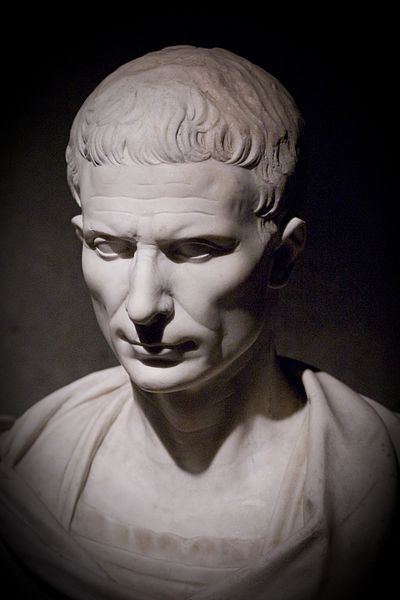




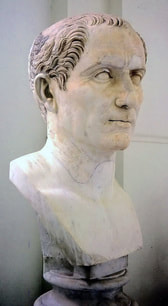
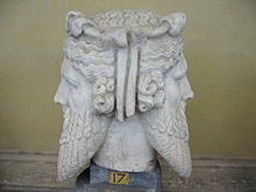
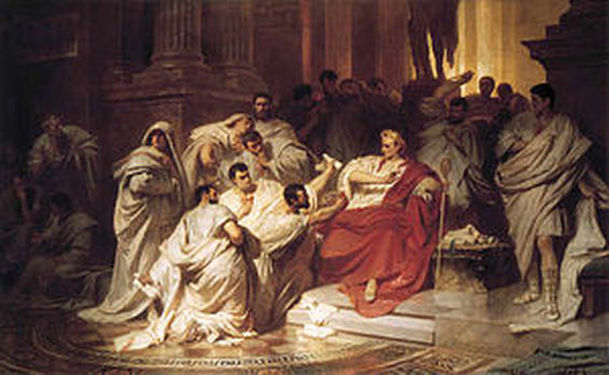


 RSS Feed
RSS Feed
